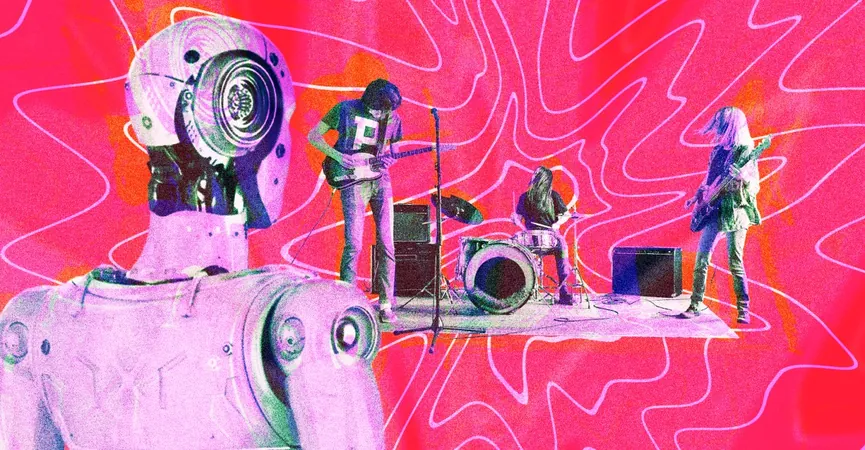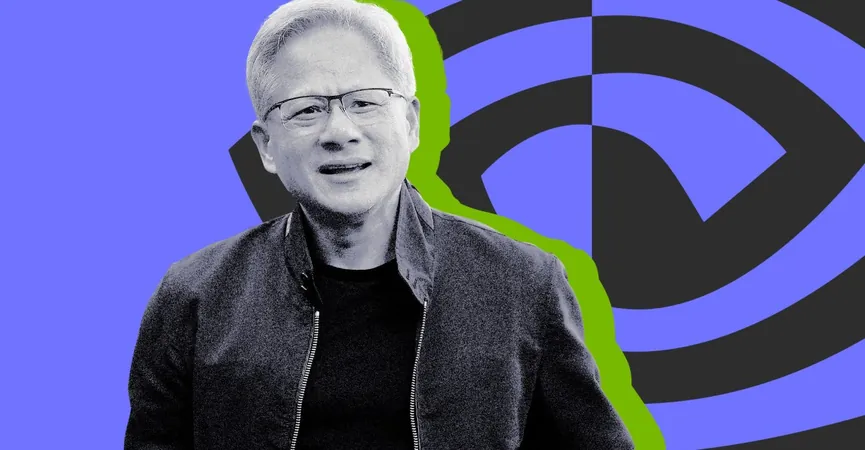
Is AI Poised to Revolutionize the Music Industry like Napster Did?
2025-07-01
Author: Chun
The music industry is witnessing a radical shift as AI technology starts to reshape its landscape, sparking debates reminiscent of the Napster era. While many see record labels as the villain, AI companies are cleverly positioning themselves to take the lead by potentially turning these labels into defenders of creativity.
AI is infiltrating various creative realms—including literature and journalism—by generating everything from book covers to entire articles, often under established authors' names. Music, however, stands at a unique crossroad due to its robust copyright protections and a network of powerful companies that control the market. Record labels are actively pushing back against AI firms, leveraging their strong legal footing.
The Rise of AI in Music: A Double-Edged Sword
On one hand, AI music technologies can democratize access to music production. Artists like D4vd have recorded hits using AI-powered apps like BandLab, which allows musicians to produce music without the need for traditional studios. Yet, on the other hand, big players like Suno and Udio are focusing on creating music by simply interpreting user-generated prompts, raising questions about originality and quality.
AI-generated music does have the potential to clutter platforms like Spotify, diluting the market with low-quality tracks generated by anyone with basic prompts. This threatens not just hobbyists but also professional musicians who create background music for various industries. While pop icons like Taylor Swift remain largely unaffected, small-scale creators may find their livelihoods at risk.
Legal Battles on the Horizon
The legal implications of AI music generation are significant. Major record labels have initiated lawsuits against companies like Suno and Udio, arguing that they have unlawfully used copyrighted works to train their AIs. The legal landscape around AI and copyright remains murky, with courts struggling to establish consistent rulings.
Examples from past cases indicate that music has uniquely stronger protections against unauthorized sampling. Historical rulings suggest that unauthorized use of copyrighted material could have serious ramifications for AI companies utilizing such works without permission.
The Future of Music Creation and Licensing
The ongoing discussions around AI in music highlight the necessity of a fair licensing framework. Companies like BandLab are exploring ways to ensure that artists are compensated when their work is used for AI training. This includes enabling artists to signal their openness to license their creations for such purposes, aiming to create a balanced ecosystem.
As AI continues to evolve, the music industry stands at a critical juncture. Companies must navigate complex legal waters while embracing technology that could redefine how music is made and consumed. The question lingers: will AI empower artists, or will it become their greatest rival? One thing’s for sure; the stakes are higher than ever.


 Brasil (PT)
Brasil (PT)
 Canada (EN)
Canada (EN)
 Chile (ES)
Chile (ES)
 Česko (CS)
Česko (CS)
 대한민국 (KO)
대한민국 (KO)
 España (ES)
España (ES)
 France (FR)
France (FR)
 Hong Kong (EN)
Hong Kong (EN)
 Italia (IT)
Italia (IT)
 日本 (JA)
日本 (JA)
 Magyarország (HU)
Magyarország (HU)
 Norge (NO)
Norge (NO)
 Polska (PL)
Polska (PL)
 Schweiz (DE)
Schweiz (DE)
 Singapore (EN)
Singapore (EN)
 Sverige (SV)
Sverige (SV)
 Suomi (FI)
Suomi (FI)
 Türkiye (TR)
Türkiye (TR)
 الإمارات العربية المتحدة (AR)
الإمارات العربية المتحدة (AR)